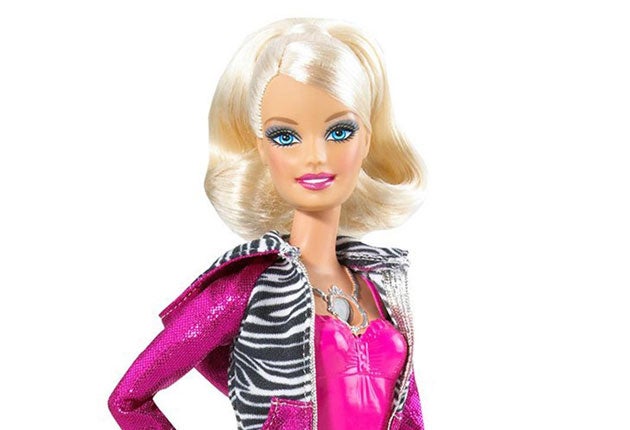Bratz beats Barbie in America's $310m legal battle of the dolls

Your support helps us to tell the story
From reproductive rights to climate change to Big Tech, The Independent is on the ground when the story is developing. Whether it's investigating the financials of Elon Musk's pro-Trump PAC or producing our latest documentary, 'The A Word', which shines a light on the American women fighting for reproductive rights, we know how important it is to parse out the facts from the messaging.
At such a critical moment in US history, we need reporters on the ground. Your donation allows us to keep sending journalists to speak to both sides of the story.
The Independent is trusted by Americans across the entire political spectrum. And unlike many other quality news outlets, we choose not to lock Americans out of our reporting and analysis with paywalls. We believe quality journalism should be available to everyone, paid for by those who can afford it.
Your support makes all the difference.The latest round in the knockdown, drag-out fight between the makers of the iconic teenage fashion doll Barbie and of her upstart catwalk competitors the Bratz has been resolved by a judge in California – and it's the former who has her tights in a twist and her hair in a tangle.
A federal judge ordered Mattel, the world's biggest toy maker, to pay MGA Entertainment, which introduced the Bratz line of pouty, multi-ethnic dolls a decade ago, more than $309m in damages, fees and other costs arising from a legal wrestling match quite unbecoming of the plastic ladies they make.
It began in 2004 when Mattel alleged that one of its former employees, Carter Bryant, had come up with the Bratz line of sassy dolls while he was working at the company, and that his decision to leave and take the idea to the much smaller MGA amounted to theft.
It was contention that at first found favour in the courts. In 2008, a jury agreed that Mr Bryant had violated the terms of his "inventions agreement" with Mattel by developing the Bratz brand at the rival company. That ruling was overturned on appeal and a new trial was ordered. In April this year, a new jury said Mattel had not demonstrated copyright infringement. Instead, it said Mattel had been stealing ideas from MGA.
The award announced by Judge David Carter late on Thursday confirmed that finding and was welcomed by the MGA chief executive, Isaac Larian, as the fruit of his company's years of efforts to stand up to its much larger accuser. "I feel vindicated and I'm very excited," he told the Los Angeles Times "I'm happy for MGA, MGA employees and all the people who believed in us and did not abandon us for all these years."
For its part, Mattel indicated that it still wasn't ready for a friendly reconciliation between Barbie and the Bratz. "Mattel strongly believes that the outcome at the trial level is not supported by the evidence or the law," the company said. "We remain committed to finding a reasonable resolution to the litigation."
The original case centred on Mattel's contention that Mr Bryant dreamed up the hip-hop Bratz dolls in 1999 when he was a full-time employee at the company. He has insisted on the stand however that first glimmerings of the Bratz line actually came to him one year earlier when he was on a break from Mattel.
The Bratz camp is not satisfied yet, however, and says it will seek further compensation for what it claims has been the "criminal" assaults against it by Mattel. "We will now pursue our anti-trust case against Mattel and its CEO Bob Eckert in order to get fully compensated for the damages Mattel has caused MGA," Mr Larian added.
Until the Bratz girls emerged in 2001, the empire of Barbie had remained largely unchallenged. The interloper proved to be an early success racking up some $1bn in annual sales and cutting into the Barbie market share.
The appeals court judge last year made no bones about his view that Mattel was out of order in trying to chase Bratz off the shelves. "Mattel can't claim a monopoly over fashion dolls with a bratty look or attitude, or dolls sporting trendy clothing – these are all unprotectable ideas," Chief Judge Alex Kozinski said.
Bratz...
Born: 2001
Parent Company: MGA Entertainment
Price: From £9.97 in Tesco
Sales: More than 125 million Bratz dolls were sold in the first five years after they were launched
Profits: Worldwide sales of Bratz dolls and accessories reportedly broke the $1bn mark at the height of their popularity in 2005 Global reach Bratz dolls are sold in nearly 70 countries worldwide.
...vs Barbie
Born: 1959
Parent Company: Mattel
Price: From £9.97 in Tesco
Sales: More than one billion Barbie dolls had been sold by 2009, and an estimated 90 per cent of American girls aged between three and 10 own at least one Barbie, according to Mattel.
Profits: In 2005, sales of Barbie products remained higher than Bratz at $3bn, but these figures had fallen by around 13 per cent compared with 2004 Global reach Barbie dolls have been sold in more than 150 countries, including in the Middle East, where an alternative version called Fulla is sold
Join our commenting forum
Join thought-provoking conversations, follow other Independent readers and see their replies
Comments